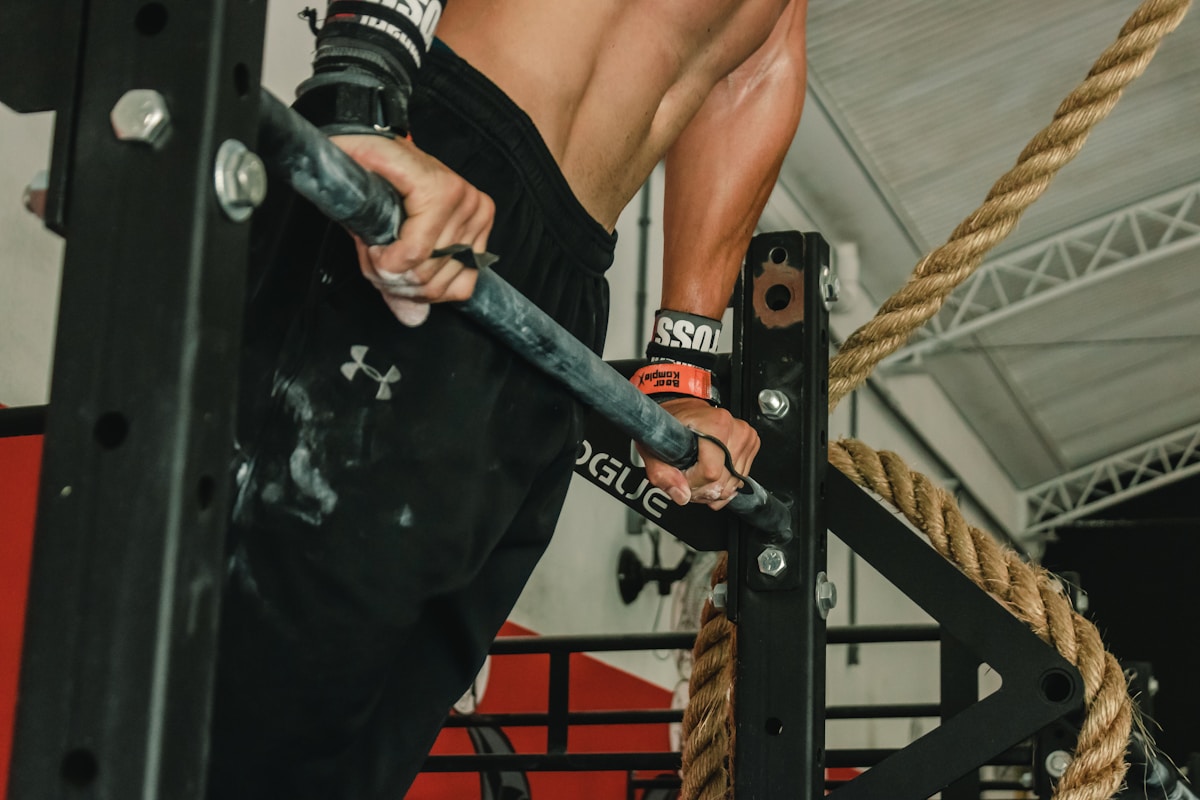CrossFit Nutrition: Fueling Your Performance for Optimal Results
Understanding CrossFit Nutrition: The Role of Diet in Performance and Results
CrossFit is a demanding and intense fitness regimen that requires proper nutrition to support performance, recovery, and overall results. Understanding the role of diet in CrossFit is crucial for maximizing your potential and achieving your fitness goals.
CrossFit nutrition focuses on fueling the body with the right balance of macro and micro nutrients to optimize energy levels, enhance endurance, promote muscle growth, and support overall health. A well-rounded diet for CrossFit includes a combination of lean proteins, complex carbohydrates, healthy fats, and plenty of fruits and vegetables.
Protein is essential for muscle repair and growth, making it a key component of a CrossFit diet. Lean sources such as chicken, turkey, fish, and plant-based proteins like beans and lentils are excellent choices. Carbohydrates provide the energy needed for intense workouts and should come from sources like whole grains, sweet potatoes, and fruits. Healthy fats from sources like avocados, nuts, and olive oil provide long-lasting energy and support hormone function.
In addition to macronutrients, micronutrients such as vitamins and minerals play a vital role in CrossFit nutrition. Adequate intake of vitamins and minerals from a variety of fruits, vegetables, and whole foods supports overall health, immune function, and recovery.
Proper hydration is also essential for optimal CrossFit performance. Adequate water intake before, during, and after workouts helps maintain electrolyte balance, regulate body temperature, and support optimal muscle function.
By understanding the role of diet in CrossFit, you can make informed choices to fuel your body for optimal performance and achieve the results you desire. In the following sections, we will delve deeper into specific aspects of CrossFit nutrition to help you fine-tune your diet and achieve your fitness goals.
Macro and Micro Nutrients: Building Blocks of a CrossFit-Focused Diet
A CrossFit-focused diet emphasizes the importance of both macro and micro nutrients to support performance, recovery, and overall health. Understanding these building blocks is essential for optimizing your nutrition and achieving your fitness goals.
Macronutrients are the major nutrients that provide energy to the body and include carbohydrates, proteins, and fats. Carbohydrates are the primary fuel source for high-intensity workouts, providing energy for intense efforts. Opt for complex carbohydrates like whole grains, fruits, and vegetables to sustain energy levels and support endurance.
Proteins are crucial for muscle repair, growth, and recovery. They help rebuild damaged muscle fibers and support the development of lean muscle mass. Include lean sources of protein such as chicken, turkey, fish, eggs, and plant-based options like tofu and legumes.
Healthy fats play a vital role in hormone regulation, joint health, and providing sustained energy. Incorporate sources of unsaturated fats like avocados, nuts, seeds, and olive oil into your diet.
In addition to macronutrients, micro nutrients are essential for overall health and well-being. These include vitamins and minerals obtained from a varied diet rich in fruits, vegetables, whole grains, and lean proteins. Micronutrients support immune function, aid in energy production, and help with recovery and muscle repair.
It’s important to remember that individual needs may vary based on factors like body composition, activity level, and specific goals. Consulting with a registered dietitian or nutritionist who specializes in sports nutrition can help tailor your macro and micro nutrient intake to your unique needs.
By understanding the role of macro and micro nutrients and incorporating them into your CrossFit-focused diet, you can optimize your nutrition and support your performance and recovery for optimal results.
Pre-Workout Fuel: What to Eat Before a CrossFit Session for Energy and Performance
Fueling your body with the right nutrients before a CrossFit session is essential for optimal energy and performance. The pre-workout meal or snack should provide a balance of carbohydrates, protein, and healthy fats to support sustained energy, muscle function, and recovery.
Carbohydrates are crucial for fueling high-intensity workouts. Choose easily digestible sources like fruits, whole grains, or a small serving of complex carbohydrates such as sweet potatoes or quinoa. These provide a steady release of energy to sustain you throughout your session.
Including protein in your pre-workout meal helps to support muscle repair and growth. Opt for lean protein sources such as chicken, turkey, Greek yogurt, or plant-based options like tofu or lentils. Combining protein with carbohydrates can also enhance muscle glycogen storage and aid in recovery.
Healthy fats are an additional source of sustained energy. Incorporate sources like avocados, nuts, or nut butter into your pre-workout meal. These provide essential fatty acids and help slow down the release of carbohydrates for a more gradual energy release.
Timing is also crucial. Aim to eat a balanced meal or snack 1-2 hours before your workout to allow for proper digestion. However, if you’re short on time, a small snack 30 minutes to an hour before your session can still provide a boost of energy.
Experiment with different foods to find what works best for your body and digestive system. Listen to your body and pay attention to how different foods make you feel during your workouts.
By fueling your body with the right nutrients before a CrossFit session, you can maximize your energy levels, improve performance, and support muscle recovery.
Post-Workout Recovery: Optimizing Nutrition to Support Muscle Repair and Growth
Post-workout nutrition plays a crucial role in supporting muscle repair and growth after a challenging CrossFit session. The right combination of nutrients can help replenish glycogen stores, reduce muscle soreness, and promote overall recovery.
One important nutrient to focus on after a workout is protein. Consuming protein-rich foods or supplements within 30 minutes to an hour after your session can enhance muscle protein synthesis and aid in the repair of damaged muscle fibers. Opt for lean sources of protein such as chicken, fish, eggs, or whey protein powder to provide essential amino acids.
Carbohydrates are also essential for replenishing glycogen stores, which can become depleted during intense exercise. Including a source of carbohydrates in your post-workout meal or snack can help restore energy levels and support recovery. Choose complex carbohydrates like whole grains, fruits, or sweet potatoes.
In addition to protein and carbohydrates, don’t forget about hydration. Replenishing fluids and electrolytes lost during exercise is crucial for optimal recovery. Water, sports drinks, or coconut water can help restore hydration levels.
Including some healthy fats in your post-workout meal can also aid in nutrient absorption and provide anti-inflammatory benefits. Add sources like avocado, nuts, or olive oil to your meal.
Timing is key for post-workout nutrition. Aim to consume a balanced meal or snack within 1-2 hours after your session to take advantage of the post-exercise window of opportunity.
By focusing on proper post-workout nutrition, you can support muscle repair and growth, enhance recovery, and optimize your overall performance in CrossFit.
Hydration: The Importance of Proper Fluid Intake in CrossFit Performance
Hydration is a crucial aspect of optimal performance in CrossFit. Proper fluid intake is essential for maintaining bodily functions, regulating body temperature, and supporting overall performance and endurance.
During intense workouts, you lose fluids through sweat, and if not adequately replenished, dehydration can occur. Dehydration can lead to decreased performance, muscle cramps, fatigue, and even heat-related illnesses. Therefore, it’s important to prioritize hydration before, during, and after your CrossFit sessions.
The amount of fluid you need depends on factors such as the duration and intensity of your workouts, environmental conditions, and individual sweat rates. As a general guideline, aim to drink at least 8-10 cups (64-80 ounces) of water per day, and increase your intake on workout days or in hot weather.
Electrolytes, such as sodium, potassium, and magnesium, are also essential for proper hydration and muscle function. You can replenish electrolytes through electrolyte-enhanced water, sports drinks, or by consuming foods rich in electrolytes like bananas, avocados, and leafy greens.
To ensure proper hydration, drink water before, during, and after your CrossFit sessions. It’s helpful to have a water bottle nearby to sip on throughout your workout, especially during breaks. Pay attention to your body’s thirst signals and aim to drink fluids regularly to maintain hydration.
Remember that individual hydration needs may vary, so listen to your body and adjust your fluid intake accordingly. By prioritizing hydration, you can optimize your CrossFit performance, promote recovery, and maintain overall health and well-being.
Conclusion
In conclusion, nutrition plays a vital role in your CrossFit journey. By understanding the importance of macronutrients, micronutrients, pre- and post-workout fueling, and hydration, you can fuel your body optimally for enhanced performance, improved recovery, and better overall results. Remember that individual needs may vary, so it’s important to listen to your body, experiment, and find what works best for you. With the right nutrition strategy in place, you can maximize your potential and achieve your fitness goals in the world of CrossFit. Fuel up and conquer your workouts!



